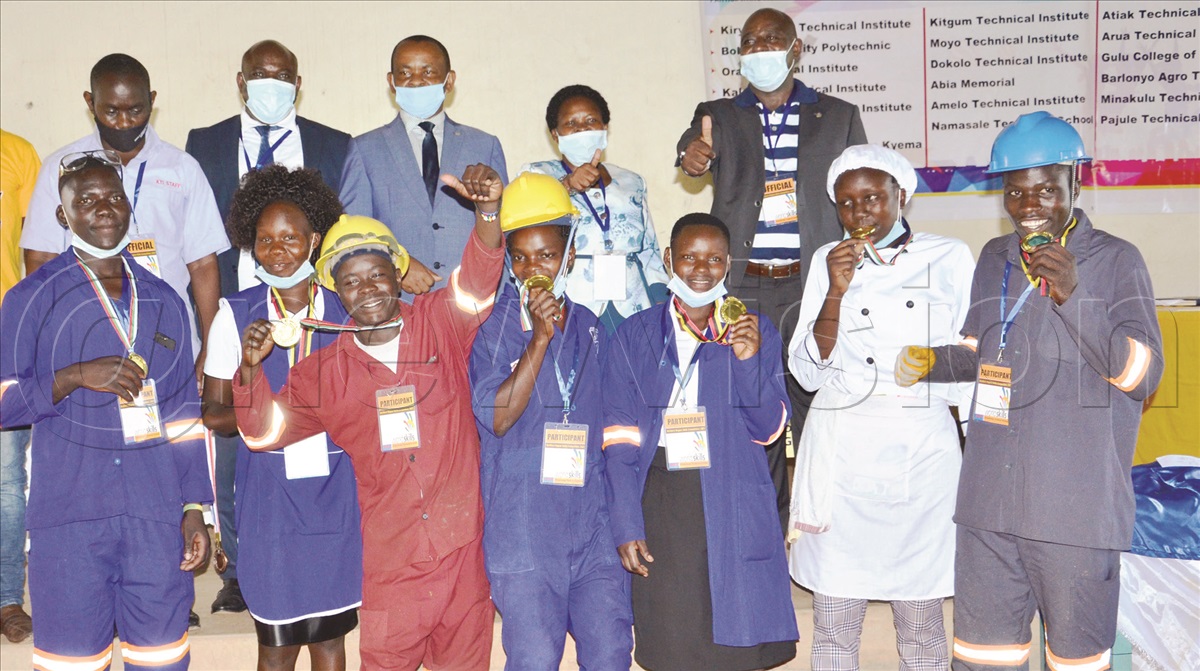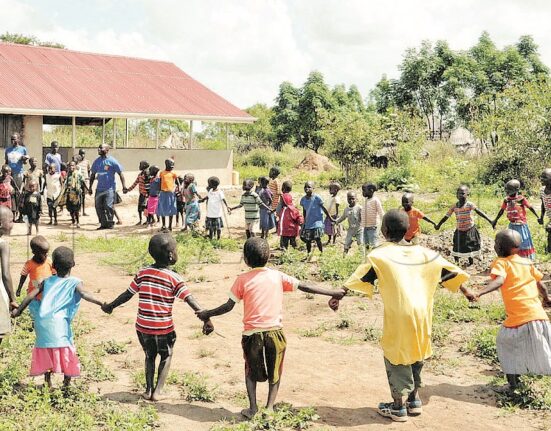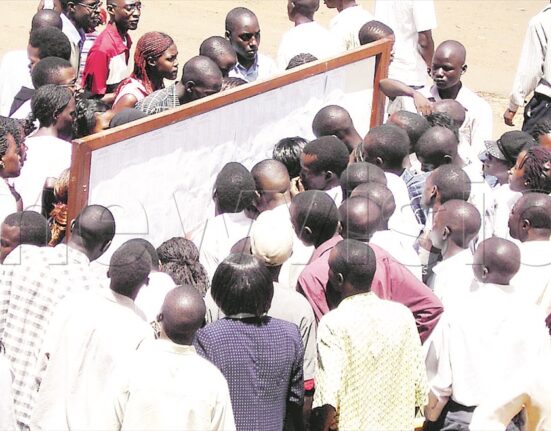(This article was first published in the New Vision on June 16, 2021)
By Arnest Tumwesige
Alice Drichuru is a multi-talented student whose performance in athletics and football earned her an O’level scholarship.
While representing Kiryandongo district at regional level in both extra-curricular activities, little did she know that the same would apply in vocational skills.
The 21-year-old, a resident of Kalwala village, Kikube parish in Kiryandongo sub-county, was admitted to Kiryandongo Technical Institute (KTI) through Uganda Refugee Employment Promotion Project (UREPP) that supports the skilling of refugees and host communities.
The institute held a building and construction assessment for the students and Drichuru emerged the best, beating six boys.
“I have attended this training for only three months and cannot imagine that I performed better than those who have been studying for almost a year,” she told New Vision.
The competition, which attracted 26 participants from seven institutions in northern Uganda, was held at KTI, with only eight girls taking part.
The host institution was the best in each of the seven skills categories. These included building and construction, machining and fitting, carpentry and woodwork, cooking, fashion design, hairdressing and electrical installation.
Derrick Busobozi, a 19-year-old being skilled in machining and fitting, is another student participating in the national competition.

Busobozi made a plumb bob in four hours.
“I can ably make a pulley, a bush, nuts and bolts. This is what I always wanted to be in my life. I am not misplaced at all,” he said.
Drichuru and Busobozi are among the 14 students who will represent northern region at the national skills competition in September.
From the national competition, a team will be selected to represent Uganda in Namibia for Africa Skills Competition that will be held early 2022, before heading to China in October that same year.
This year’s skills competition started with training of over 40 instructors as judges or mentors throughout the country at the Kiryandongo institute in March.
These were trained by experts from South Africa and Uganda so that they can train the students to make products that meet international standards.
First Participation
Uganda became a member of the World Skills Competition in 2019, becoming the 82nd nation to join globally and the eighth in Africa.
The journey to start the competition commenced in 2015, when Dominic Kyambadde, an instructor at Management Training and Advisory Centre (MTAC), returned from India and started organising the annual event.
The first competition was held at MTAC and in 2016 and 2017, the event was held at Nakawa Vocational Institute in Kampala.
Eng. Eddy Baingana Turyatemba, the principal of KTI, said through the years, Kyambadde kept on engaging commissioners from Business Technical Vocational Education Training (BTVET) to preside over the event.
Turyatemba added that the engagement also included government and private institutions to appreciate the competition and embrace it.
In 2018, Elizabeth Kateme, the acting assistant commissioner in charge of business education and Safinah Kisu Musene, the commissioner BTVET, agreed to take up the competitions as government. A secretariat was established to spearhead the competitions in the country.
“When I went to India to attend World Skills Competition, I was impressed to see children of 15 years were the ones in the assembling phones and laptops, which is not the case in Uganda. I was challenged on how Ugandan children could also be skilled,” Kyambadde told said.
After the Government embraced the initiative, Uganda was able to take part in the Africa skills competitions, which were held in Rwanda.
Since the African competitions were open to any country in Africa, it only required a country to express interest through applying.
In 2019, Uganda started applying to become a member of World Skills Competitions, of which it was officially welcomed during the world event that was held in Karzan, Russia.
At this time, Uganda attended the competitions as an observer. Turyatemba said at the moment, Uganda is only allowed to compete in three trades as the world skills experts evaluate the country’s capacity to compete in all the trades.
Why Vocational Skills?
Enock Ntambi, a skills development specialist from the labour ministry, said national development hinges on skills, which are key in infrastructure and technological development.
Reflecting on the northern region’s competition theme — Refocusing efforts on production of appropriate skilled labour for the economy — Ntambi said there is a lot of changes in the job market brought by technology.
“For instance, one requires computer skills to detect any technical fault in a car, which was not the case in the past,” he said.
Ntambi also emphasised that technical and vocational education training must be employer-led, which necessitates the inclusion of labour productivity.
Priority components must include work culture, ethics, quality work and communication skills to the clients so that the trainees can be able to compete in the East African market.
Eng. Martin Kasekende, the chairperson grants committee of Skills Development Fund, which is being funded by the Government in partnership with the World Bank, was glad to note that the Government is taking the lead in skilling Ugandans in partnership with the private sector. He said shortage of skills among young people hinders the country’s development.
“Teach critical skills that are ideal for the job market. We are happy that we now have World Skills Uganda. It enhances skills for the participants and further partnerships,” he said.
What Others Say
The Rev. Edward Kirya, the Kiryandongo district education officer, said the new lower secondary school curriculum includes the teaching of vocational skills.
Kirya said the teachers at both primary and secondary levels need to be skilled to implement the new curriculum.
“This will help the young to appreciate and embrace the skilling programmes,” he said









Leave feedback about this